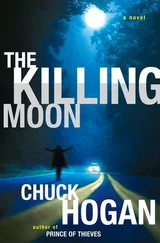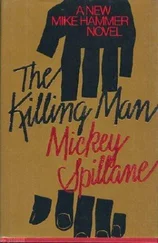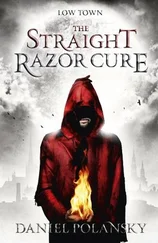Daniel Polansky - Tomorrow, the Killing
Здесь есть возможность читать онлайн «Daniel Polansky - Tomorrow, the Killing» весь текст электронной книги совершенно бесплатно (целиком полную версию без сокращений). В некоторых случаях можно слушать аудио, скачать через торрент в формате fb2 и присутствует краткое содержание. Жанр: Старинная литература, на английском языке. Описание произведения, (предисловие) а так же отзывы посетителей доступны на портале библиотеки ЛибКат.
- Название:Tomorrow, the Killing
- Автор:
- Жанр:
- Год:неизвестен
- ISBN:нет данных
- Рейтинг книги:3 / 5. Голосов: 1
-
Избранное:Добавить в избранное
- Отзывы:
-
Ваша оценка:
- 60
- 1
- 2
- 3
- 4
- 5
Tomorrow, the Killing: краткое содержание, описание и аннотация
Предлагаем к чтению аннотацию, описание, краткое содержание или предисловие (зависит от того, что написал сам автор книги «Tomorrow, the Killing»). Если вы не нашли необходимую информацию о книге — напишите в комментариях, мы постараемся отыскать её.
His name is Warden.
He thought he had left the war behind him, but a summons from up above brings the past sharply, uncomfortably, back into focus. General Montgomery's daughter is missing somewhere in Low Town, searching for clues about her brother's murder. The General wants her found, before the stinking streets can lay claim to her, too.
Tomorrow, the Killing — читать онлайн бесплатно полную книгу (весь текст) целиком
Ниже представлен текст книги, разбитый по страницам. Система сохранения места последней прочитанной страницы, позволяет с удобством читать онлайн бесплатно книгу «Tomorrow, the Killing», без необходимости каждый раз заново искать на чём Вы остановились. Поставьте закладку, и сможете в любой момент перейти на страницу, на которой закончили чтение.
Интервал:
Закладка:
Well, that was pretty fucking easy, I thought, and pushed aside my plate.
My tobacco pouch sat on the counter. I thumbed out a sheaf of paper and a few tufts, playing for time. The portrait painter had taken liberties, but then I guess that’s what they’re paid for. The woman in front of me was a far cry from the vision in miniature I had been given. Her face lacked any trace of softness, of the plump vitality that draws the male gaze. She was too sharp, too angular, her body a reflection of the belligerence her reputation spoke of and our short acquaintance confirmed. A crueler man than I might have called her boyish, and I imagined her childhood had contained no shortage of pimpled wits happy to plague her with similar epithets. Still, her scarlet hair was as striking in person as in oil, a vivid contrast with the blue of her eyes.
The longer the pause lasted the narrower these got, till they were little more than slits in a sea of freckled pink. ‘Well? I asked you a question.’
‘You look like your brother,’ I opened.
Excitement spilled across her face, but she killed it quick, tightening her mouth into a sneer. ‘You knew my brother?’
‘I served under him during the war. I saw him around a little after that.’
She cocked her head as if to spear me. ‘I don’t believe you.’
‘All right then. You look like your mother.’
Now she was thoroughly confused, so much so that for a moment she forgot even to be angry. Her face was more pleasant when it wasn’t radiating antipathy. ‘You knew my mother?’
‘No, never met her,’ I said, flagging down Adolphus. He sidled over from the other side of the bar and refilled my glass.
‘Who’s this?’ His smile would have been charming if it hadn’t been attached to the rest of him.
‘She’s our new bar keep. I’m sick of watching you drag your ass over here every time I need a beer.’
Adolphus looked her up and down. ‘Not sure she’s big enough,’ he said. Then, to her, ‘You think you could carry a half-cask up from the basement?’
‘I’m not a bar back!’
‘No need to get huffy about it.’ Adolphus winked his one good eye and drew off, chuckling.
I took a shallow drag off my cigarette while she composed her fraying nerves. ‘Why are you looking for me?’ she said again.
‘Why do you think?’
‘It’s Father, isn’t it?’ She shook her head angrily. Petulantly, if you were inclined to be judgmental about it. ‘Tell him he can stop worrying. Tell him I can take care of myself.’
‘Can you?’
‘I’m here, aren’t I? I’ve made it this far.’
‘So did he,’ I pointed at a drunk passed out in the corner, his snoring interrupted by the occasional involuntary belch. ‘But if we were kin I’d be concerned to hell.’
She had primed herself for a screaming match, and my refusal to offer a fight left her unsorted. Her shoulders slumped, pinned down by the day’s length. ‘What does he want from me?’
‘The general? I think he’d like you to outlive him. It’s a common hope of parents, I’m told.’
‘And what of Roland?’
‘I imagine your father would have liked him to do the same.’ The longer the conversation lasted the more it was becoming clear I was not the ideal candidate to reconcile the Montgomery family, never having had a family myself, nor entirely understanding their purpose.
‘You say you knew my brother.’
‘I said that.’
‘How well?’
‘How well does anyone know anyone?’
‘Did you think him the sort of man to end his life face down in the gutter, outside of a Low Town whorehouse?’
‘I’ve known better men who died worse.’
That was close enough to an attack to allow her temper free reign. ‘You can tell Father I’m not some child to get fetched by the help. You tell him I’ll stay in Low Town till Roland gets justice, since he’s not man enough to see it done himself.’
As she turned to walk away I closed the tips of my fingers around her wrist. ‘Let me tell you something about the dead, as someone who’s seen a few of them. They don’t care what we do. They don’t yearn for vengeance, and they don’t hope for redemption. They rot.’ I tightened my grip slightly. ‘Stick around Low Town and you’ll find out I’m right.’
She ripped her arm away with enough force that I worried she might have injured herself. Then she shot me a look that could have curled paint, and stalked off into the night.
I finished the rest of my drink and told myself to stay out of it, knowing I’d be too stupid to listen.
7
Roland Montgomery’s birthday party was not my kind of scene.
This was a year or two after the armistice. I was a low-ranking agent, investigating crimes and punishing the guilty, or at least the unlucky. Roland was amongst the most beloved heroes of the Great War, and the Association rapidly becoming a political power. That ought to have been enough to mitigate against our continued interaction, even without the differences in our upbringing and social status. I suppose Roland’s willingness to try and forge a friendship despite them was to his credit. But virtue and vice often walk hand in hand, and I sometimes wondered if his sense of egalitarianism wasn’t an offshoot of his consuming love of being liked.
In later years, in my professional capacity as a purveyor of phantasms and herb-induced bliss, I would find myself in any number of upper-class debaucheries, half-orgies populated by the degenerated scions of the aristocracy. This was about as far from those as you could get. General Montgomery was old school, and though Roland’s politics now ran to the radical, personally he was as little taken with revelry as his father. I suspected that this celebration was not of his making, that if his wishes had been taken into account the day would have come and gone unmarked.
A white canvas tent had been erected in the backyard, a term that hardly does justice to the virtual nature preserve that was the Montgomerys’ grounds. The late spring evening was illuminated by white lanterns hung amidst foliage. The weather had been kind enough to go along with the proceedings, the night warm, the sky clear. A pleasantly bucolic scene, though the chattering of the insects was largely drowned out by the chattering of the guests. Waiters shoved trays of over-elaborate pastries into my face, diced quail spleens with candied almonds, goose liver dabbed atop thin-cut white bread, things that looked like food but somehow weren’t quite. I got the sense that no one else was having a particularly good time, but then they’d all had more practice in faking it.
The young Rouender woman with whom I was nominally conversing had spent a good deal of money to look very cheap. She wore little in the way of clothing but a great deal of make-up, along with a selection of jewelry that weighed enough to drown a man in a gutter. Her name was Buffy or Minnie or some other jarring diminutive more appropriate for a child’s doll than an adult. I’d long since stopped paying attention to her words, but their gradual increase in volume suggested her anecdote had reached its climax. I shook free of my thoughts long enough to catch the last sentence. ‘It’s just so hard to find a decent servant these days.’
‘A constant struggle,’ I agreed.
‘You have no idea. And if you are lucky enough to find someone who knows what they’re doing, good luck keeping her! I had the sweetest little girl, a half-Islander who could do the most amazing things with my hair. Five years I had her, and then one day she just disappeared, shipped out to the Free Cities with some . . . man she’d married.’
‘After everything you’d done for her.’
‘Exactly!’
Foremost what is hateful about the aristocracy is their fundamental meaninglessness – they do nothing and thus are nothing. On some dim level they seem to be aware of it, hence their refuge in petty intrigues and expensive narcotics, in nightly soirées and the occasional bloody duel. There’s a frantic quality to their play, more distraction than recreation. If things ever stopped spinning long enough for them to take a look at themselves, half would end up taking a midnight dip in the bay.
Читать дальшеИнтервал:
Закладка:
Похожие книги на «Tomorrow, the Killing»
Представляем Вашему вниманию похожие книги на «Tomorrow, the Killing» списком для выбора. Мы отобрали схожую по названию и смыслу литературу в надежде предоставить читателям больше вариантов отыскать новые, интересные, ещё непрочитанные произведения.
Обсуждение, отзывы о книге «Tomorrow, the Killing» и просто собственные мнения читателей. Оставьте ваши комментарии, напишите, что Вы думаете о произведении, его смысле или главных героях. Укажите что конкретно понравилось, а что нет, и почему Вы так считаете.












